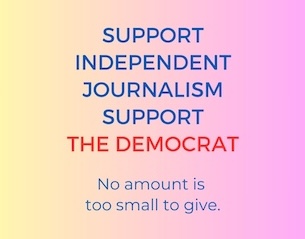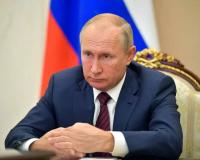- World
- What Are The Pandemic-Sized Hurdles Facing Tokyo Olympics
What Are The Pandemic-Sized Hurdles Facing Tokyo Olympics
To athletes across the world, it represents the pinnacle of sporting excellence. But the Olympic Games amid a pandemic finds it has to contend with fresh Covid-19 peaks as new variants enter the mix. Indeed, at a time when the Olympic motto of ‘Swifter, Higher, Stronger’ may be aptly borrowed to describe the course a

To athletes across the world, it represents the pinnacle of sporting excellence. But the Olympic Games amid a pandemic finds it has to contend with fresh Covid-19 peaks as new variants enter the mix. Indeed, at a time when the Olympic motto of ‘Swifter, Higher, Stronger’ may be aptly borrowed to describe the course a resurgent pandemic is taking, all eyes are on Tokyo to see if it can successfully host the event scheduled to start two months from now.
First Question: Are The Games On?
As of the last week of May, they are. After the 11th and final meeting of the International Olympic Committee (IOC)’s coordination panel for the Tokyo Games, it was announced on May 21 that the Games will be held even amid an emergency situation in Tokyo as every step is being taken to keep the novel coronavirus out of the equation, and the venues, when top athletes from around the globe congregate in the Japanese capital for the biggest celebration in world sport.
The Games, to be originally held last year, were postponed as the world was coming to grips with the novel coronavirus last year. Total cases globally stand at 166 million with 3.4 million lives lost so far to the infection. The decision to stage the Olympics comes at a time when several countries appear to have turned a corner against the pandemic thanks to swift vaccination drives even as others, including India, are facing up to a resurgence of cases amid the rise of new variants and a slow pace of vaccination.
Japan had a relatively milder outbreak compared with some other advanced countries and had reported about 230,000 cases and a little under 3,500 deaths in all of 2020. But 2021 has been a different story and the country has in the first five months added more than 400,000 new cases for a cumulative tally of more than 700,000 cases. The country has reported more than 8,000 deaths so far this year. Which is why there is serious opposition among the Japanese public to the hosting of the Games at this crucial juncture for the country.
Why is There worry in Japan over The Event Going Ahead
All the different stakeholders have their own reasons for wanting the Games to materialise. While Japanese PM Yoshihide Suga would be keen to pull off a successful Games as that would be seen as cementing his position as a strong administrator and sending out a message about Japan’s regional and international ambitions, the IOC can ill afford a cancelled Olympics as the once-in-four-years event brings the sports body the bulk of its earnings.
But the common Japanese on the road is far from impressed by these considerations at a time when there is a surge in Covid-19 cases and all hands are needed on the deck to tide over the crisis. More than 80% of Japanese respondents in a recent survey said they are against the Games being held this year. The issue is not so much over hosting the event at a time when the world is still not completely out of the Covid-19 cloud as the perceived failure of authorities to take the necessary steps to ensure that the country’s Covid response is not compromised by the event.
Several administrative zones across Japan have been put under Covid restrictions, including Tokyo. While the curbs for the Japanese capital are set to continue till the end of this month, people have an anxious eye on the case tally amid fears that the worst may not be over.
Significantly, red flags have been raised by medical practitioners and nurses against the hosting of the Games at this stage. Already, the Tokyo Medical Practitioners’ Association has written to top Japanese officials urging them against going ahead with the Games. Japan saw a phase of daily cases subsiding to about 1,000 after an early peak this January when the country was reporting close to 8,000 new cases. But it is now contending with a fresh surge starting in April that saw new cases come close to the January peaks.
Daily new cases have declined in the last week but the country still added more than 5,000 new infections on May 21.

The perception surrounding the Games might have been much more positive had the country managed to quickly proceed with its vaccination drive but, as things stand, it is lagging behind other advanced economies in this crucial department. Less than 2% of eligible Japanese have received two doses of the Pfizer-BioNTech shot that is being used in the country and just over 4% has received at least one dose. To put that in context, the US and UK both have covered more than 30% of their populations with two shots.
In Tokyo, only about 30% of all medical workers have received both doses.

What The Organisers Are Doing To Allay Fears
To begin with, no foreign spectators are allowed at the Games. That automatically removes tens of thousands of visitors from the mix. In fact, only about 78,000 officials, journalists and other staff will be allowed at the Olympics, down from the 180,000 that was planned earlier. The organisers are yet to take a call on the number of local spectators that would be allowed into the venues.
The IOC has not made vaccination compulsory for participants but officials have said that as many as 80% of the people at the Olympic Village would have been vaccinated by the time the Games get under way. The organisers have also announced a tie-up with Pfizer for donating vaccines to participants.
Seiko Hashimoto, the president of Tokyo 2020, has said that up to 230 doctors and 310 nurses would be needed each day during the Olympics and the Paralympics that follow from August 24. But reports say that a nurses’ body slammed organisers when they sent out a message seeking 500 nursing volunteers for the Games.
The organisers have come up with Play Books that contain directions and guidelines that include a requirement for anybody travelling to the Games to get a negative Covid-19 test two days prior to departure. According to the guidelines, athletes would need to undergo daily Covid testing and download a contact-tracing app even as the organisers have not so far insisted that the athletes will be put in any tight bubble.

However, the playbook itself has come under criticism after it was pointed out that it has put the onus of attending the Games entirely on the athletes and removes responsibility from IOC, Japanese government and Tokyo Games organisers in the event of an athlete or any other visitor testing positive for Covid-19 in Tokyo. Confusion also surrounds the modalities of the Games itself as it is not clear what bearing would a positive test for a contestant have on subsequent rounds and other athletes in the event. Say, a participant tests positive after a semi-final and before the final, how would the event be decided in such a scenario?
So, How Many Athletes Are Expected To Show Up?
According to the organiser, close to 11,000 participants would be trooping into Tokyo to take part in events in 33 sports that are to be held at 42 venues across Japan. Apart from the Summer Games, there will be 4,400 athletes who will be coming to take part in the Paralympic Games.
What About The Indian Contingent?
According to the organisers, more than 70 Indian athletes have already booked a spot at the Games by 2020 with many more in contention to make the cut.
The biggest Indian squads will be in shooting, archery, athletics, boxing with hopes riding high that the country will improve upon its tally of two medals — one silver, one bronze — that it bagged at the 2016 Rio Games.

Indeed, even amid the uncertainty surrounding the Games, Indian athletes have gone ahead with their preparations amid the odds, heading out to different corners of the world and making the most of the opportunities available. Thus if the shooting squad was put on a charter flight to Croatian capital Zagreb to train for the Olympics and warm-up events in the run-up to it, the men’s lightweight double sculls team is to head to Portugal for an exposure trip.
Back home in Kolkata, amid a lockdown in West Bengal, the Sports Authority of India centre has made special arrangements to allow gymnast Pranati Nayak, only the second Indian woman gymnast to qualify for the Olympics, to continue with her training.
But there was setback for the likes of shuttlers Saina Nehwal and Kidamabi Srikanth after the Singapore Open, the last qualifying event for the Games before the June 15 deadline, was cancelled due to a fresh surge in cases in the island nation.
Internationally, top sportspersons like Roger Federer and Rafael Nadal have expressed apprehension about taking part in the Games amid the pandemic as have Japanese tennis stars Naomi Osaka and Kei Nishikori.
Once Bitten, Twice Bye
Amid the confusion and the controversy, one thing is clear: the Games won’t be postponed again. Organisers have said that if they can’t be held this year they will be scrapped altogether. That would represent a monetary loss of between $15-$25 billion for Japan given that that is the range in which money has been spent to put together these Games.
A similar scare was also reported ahead of the 2016 Rio Olympics in Brazil when there were calls in some quarters to cancel the event. But the Games had gone ahead after the World Health Organisation (WHO) offered an assessment that “cancelling or changing the location of the 2016 Olympics will not significantly alter the international spread of Zika virus”. Brazil was at the time among a group of 60 countries and territories that had reported cases of Zika transmitted by mosquitoes.
Given the global health emergency due to the Covid-19 pandemic, the UN agency has been more circumspect about these Games with WHO chief Tedros Adhanom Ghebreyesus saying although hosting the Games “is not easy… with
national unity and global solidarity, I think it’s possible.”
There have been only three occasions in the past when the Games have been cancelled: in 1916, 1940 and 1944, each time due to the World Wars. More than the host city, any call for cancelling the Games has to be taken by IOC and, though Japan could unilaterally halt the Games, it would have to then foot the losses and liabilities arising out of such a decision.
Read all the Latest News, Breaking News and Coronavirus News here











